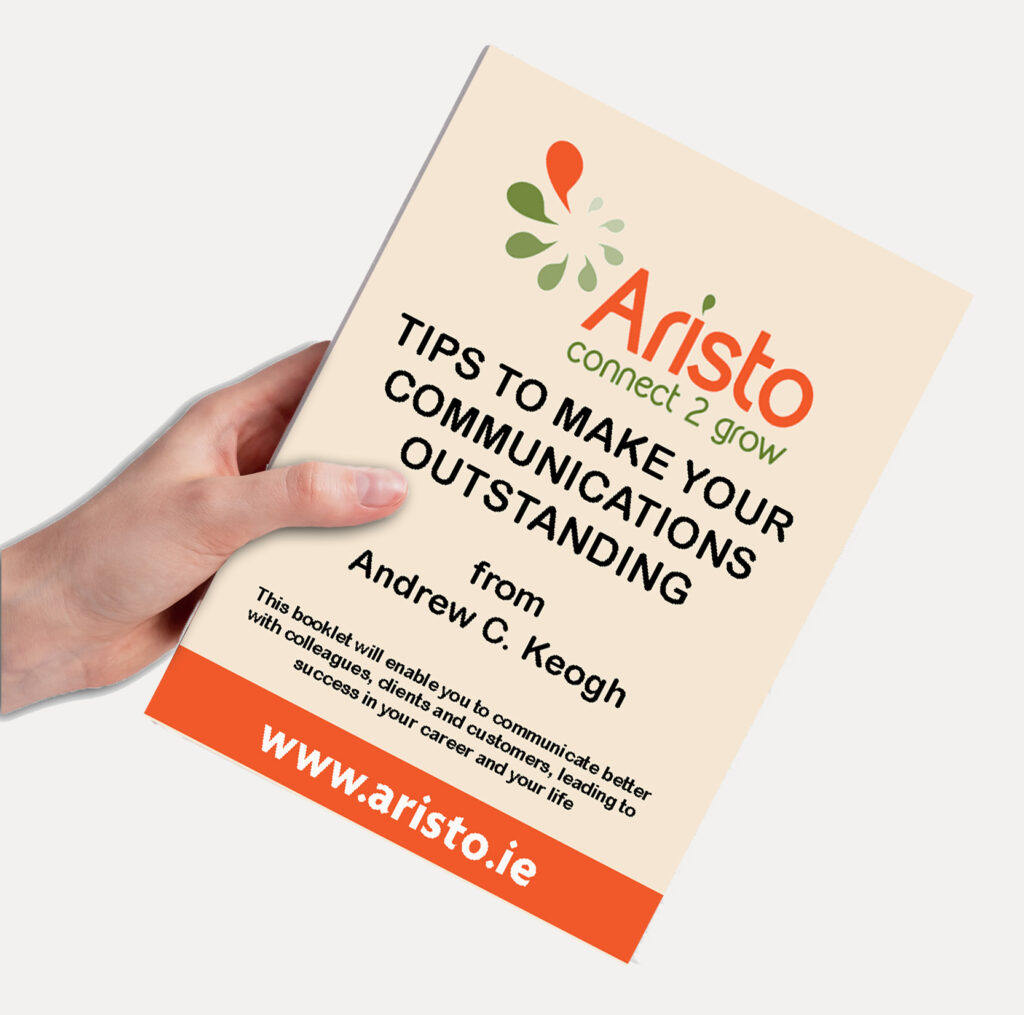
Today’s article covers the area of creating good first impressions. You only get one opportunity to create a good first impression, be it a blind date or a business pitch.
I plan to address the issue of first impressions under two general headings.
1. Written communication:
Is particularly challenging for me, I initially describe myself as someone who could not spell, but over the years, I concluded that I was dyslexic.
As someone who is self-employed and does not have a large staff at my disposal, writing letters, proposals and articles was very stressful and a much-disliked part of my daily tasks.
I realised that this was an area in which I need to face up to my issues as writing articles, such as this one, is a crucial aspect of my business.
The articles add value to my clients and my larger community who have signed up to my website and LinkedIn profile, knowing they will receive advice and tips on presenting and pitching.
Where in our daily lives do we read stuff that creates an immediate impression?
Funny notifications – sourced from my favourite Radio show The News Quiz BBC Radio 4:
Police Notice Cornwall:
“Check your home is secure, be aware that buglers may be operating in the area.”
Hilton Hotel Abu Dhabi:
“Dear Guest, this is a no smoking room, the ashtray is provided for your convenience.”
Notice to passengers in Liverpool:
“Merseyside Ferries are cancelled today because of bad weather a replacement bus service is in operation.”
Slide presentations:
When you have spelling errors in a slide or used the wrong word, this is where your audience focuses and not the message that you wish to deliver.
Proposal writing:
When you have typos, poor layout and a mix of different fonts and sizes in your proposal, it suggests you did it at short notice, with little attention to detail, or recognition of the importance of the document.
Could your prospects be forgiven for thinking that the work you propose to carry out may also be delivered in a slipshod way, very close to the deadline, or, heaven forbid, after the deadline?
Attention to detail is critical:
“For the want of a nail the shoe was lost,
For the want of a shoe the horse was lost,
For the want of a horse the rider was lost,
For the want of a rider the battle was lost,
For the want of a battle the kingdom was lost,
And all for the want of a horseshoe-nail.”Benjamin Franklin
Top tip – find a tool that helps you.
For example, by using Grammarly.com, I have increased my confidence level in my ability to both write and spell.
I also regularly remind myself of the advice passed on to me by my good friend Eve Earley whose children when growing up in America were told when writing essays in school to ‘guess and go’, in other words, be creative keep writing and have your spelling checked and corrected later. The best piece of advice I received with regards to creative writing.
The other aspect I wish to mention is the issue of cultural differences.
2. Cultural Differences:
In Ireland, we have little respect for authority (it’s a throwback to our colonial past and our resistance to our oppressors).
This lack of respect leads to a great deal of informality, i.e. I regularly hear our Taoiseach (Prime Minister) being referred to as Leo (Varadkar) in radio or television debates not only by the general public but by his colleagues in government.
Previous prime ministers were known and referred to generally by their first names: Enda, Bertie, Albert, Brian, Garett, Charlie or Mr Haughey on occasion when wishing to play the role of world statesman.
This informality would never happen in the UK – USA – Germany
It’s Mrs May (Madam May in Europe) Prime Minister May
Mr President never Donald; also in the States, you are much more likely to be addressed as Sir or Madam.
You would never address the German Chancellor as Angela!
I am currently working with the highly regarded start-up company CultureMee.com who have created a platform for business travellers wishing to educate themselves on the cultural norms of the countries in which they plan to do business.
They suggest you should not go blindfold into a new culture, give yourself an advantage by being aware of the cultural differences and how via their platform you can adjust your business communications, leading you to greater personal and business success.
More frequently in recent times I am being asked by organisations to speak to their executives about the importance of attention to detail in written communication and having a greater awareness of cultural differences when doing business overseas.
One of the many reasons for doing this is that Irish businesses now employ more people in America than American companies employ in Ireland, how cool is that!




